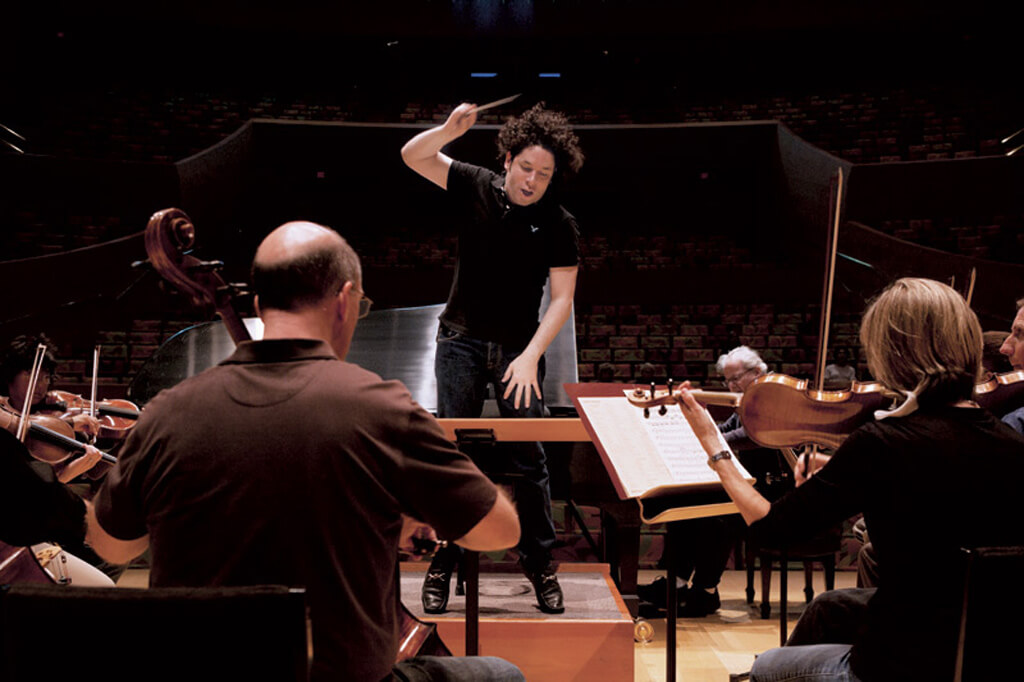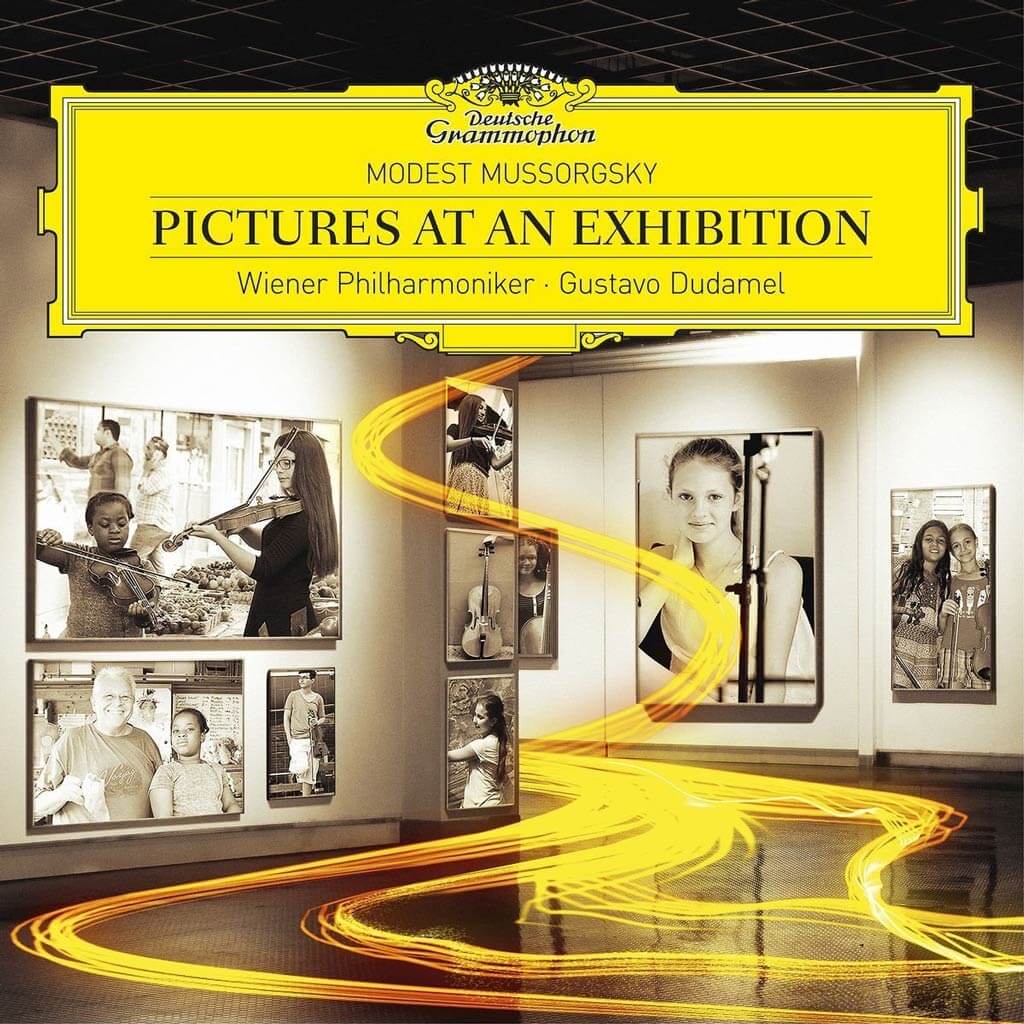
Just over a week ago, thirty-four-year-old Venezuelan Gustavo Dudamel, a celebrated maestro in great demand all over the world, became the youngest conductor thus far to lead the Vienna Philharmonic Orchestra (VPO) in its annual New Year’s concert. Dudamel, whose home base is Los Angeles, where he is music director of the Los Angeles Philharmonic, has become a favorite guest conductor in Vienna in recent years. The broadcast of his New Year’s Day 2017 VPO concert was watched by an estimated audience of more than 50 million people in 93 countries around the world, and within a few weeks DVDs and CDs of that event will be released by Sony.
The new Mussorgsky-Tchaikovsky CD from Deutsche Grammophon reviewed here is based on concerts given by Dudamel with the Vienna Philharmonic in April, 2016.
As it happens, DG already has in its catalogue a DVD recording of the Ravel orchestration of Mussorgsky’s Pictures at an Exhibition as performed by the Simón Bolívar Youth Orchestra (SBYO) and Dudamel at the Salzburg Festival in 2008. Dudamel first gained wide attention through his work with this wonderful Venezuelan youth orchestra, and their performances were notable for their extraordinary virtuosity considering that the players were so young, and also for their incredible energy. The Salzburg concert was a typical SBYO event. Players and conductor alike could hardly contain their enthusiasm, and the audience responded in kind. Unfortunately, this new recording of the work featuring Dudamel and the VPO pales by comparison.
Mussorgsky’s Pictures at an Exhibition is a celebration of the work of Russian artist Viktor Hartmann. This little-known artist died in 1873 at the age of 39 and an exhibition of his work was given in St. Petersburg the following year. In spite of the title of Mussorgsky’s piece, the works depicted musically were not all paintings; for example, the movement titled ‘Gnomus’ was inspired by a design for a nutcracker, and the “Ballet for Chicks in Their Shells” was a costume design for a ballet. That said, all these works are wonderfully imagined in music by Mussorgsky and given even more colour, variety, and power by Ravel’s 1922 orchestration.
On one level, Dudamel’s recording with the VPO is very impressive; of the dozens of recordings of this popular piece available, few are as cleanly played. In this performance, rhythms are accurate, and chords are nearly always perfectly in tune. The loud brass chords in “Catacombs” are played with exceptional precision. And yet, something very important is in short supply in this rendition of Mussorgsky’s music — namely, characterization. This is apparent throughout the performance and most of all, in the concluding movement, the “Great Gate of Kiev”. For comparison, try conductor Herbert von Karajan’s 1965 recording (DG 447 4262) with the Berlin Philharmonic. With a much slower tempo, Karajan captures the grandeur of the procession and in the quiet passages, brings out a religious component almost totally overlooked in other performances.

One might think that Valery Gergiev would be an ideal interpreter of this piece. In fact, he recorded it with the Vienna Philharmonic in 2002 (Philips 289 468 5262). Unfortunately, the all-too-busy Gergiev doesn’t show much interest in the music, and Dudamel’s recording is far more accurate.
The performance of Mussorgsky’s Night on Bald Mountain on this new DG recording is well-played and much more vividly characterized than his Pictures. Incidentally, nowhere on Dudamel’s DG recording is it noted that the version of Night on Bald Mountain being played is not Mussorgsky’s original, but rather the Rimsky-Korsakov arrangement.
Gustavo Dudamel himself is a product of Venezuela’s highly successful and much-imitated music education system called El Sistema. It is to his great credit that as his own career blossoms, he continues to use his skill and celebrity status to enable disadvantaged children everywhere to experience the joy of making music. In Vienna, he has been much involved in Superar, an organization created to give free music lessons to large numbers of underprivileged kids between the ages of 5 and 16. Some of these children are featured in the album booklet for this recording, in photos taken with their instruments on the streets of Vienna.
For more RECORD KEEPING, see HERE.
#LUDWIGVAN
Want more updates on Toronto-centric classical music news and reviews before anyone else finds out? Follow us on Facebook or Twitter for all the latest.
- SCRUTINY | TSO Lets Berlioz Do The Talking In Season Opener - September 21, 2018
- RECORD KEEPING | Even Yannick Nézet-Séguin Can’t Make Us Love Mozart’s La Clemenza di Tito - September 6, 2018
- RECORD KEEPING | Giovanna d’Arco With Anna Netrebko Explains Why The Best Operas Survive - August 30, 2018



